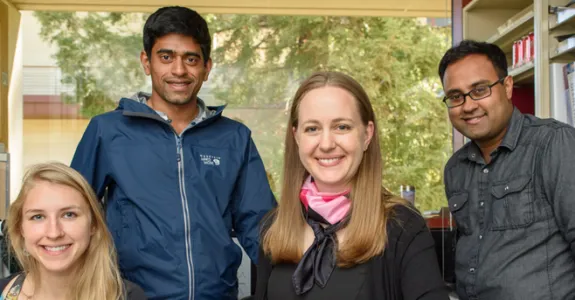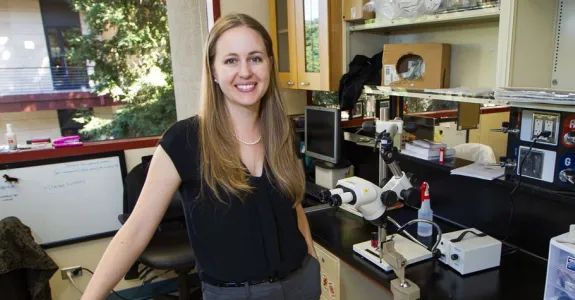
The last century witnessed the unfolding of a great intellectual adventure, as the collective human mind turned outwards to conceptually reorganize our understanding of space, time, matter and energy, now codified in the theoretical frameworks of quantum mechanics, general relativity, and statistical mechanics. Similarly, in neuroscience, we are in the midst of another grand quest, as we turn inwards to conceptually understand the workings of the very same mind capable of achieving the feats of the last hundred years.
Dr. Surya Ganguli's lab is a diverse group of physicists, mathematicians, computer scientists, bioengineers and neurobiologists, dedicated to this quest. They are motivated by two overarching questions:
- How do fundamental higher level cognitive phenomena like perception, memory, attention, decision making and motor control emerge from the collective interactions of many dynamical degrees of freedom embedded within networks of neurons and synapses?
- Can principles of high dimensional statistics and computation provide a unified view of how we as neuroscientists can extract biologically meaningful models of neural systems from large datasets, as well as how neural systems themselves can extract predictive models of their environment from the stream of sensorimotor experience?
To pursue these questions, the Ganguli lab exploits and extends tools and ideas from a diverse array of disciplines, including statistical mechanics, dynamical systems theory, machine learning, information theory, control theory, and high-dimensional statistics, as well as collaborate with experimental neuroscience laboratories collecting physiological data from a range of model organisms, from flies to humans.


